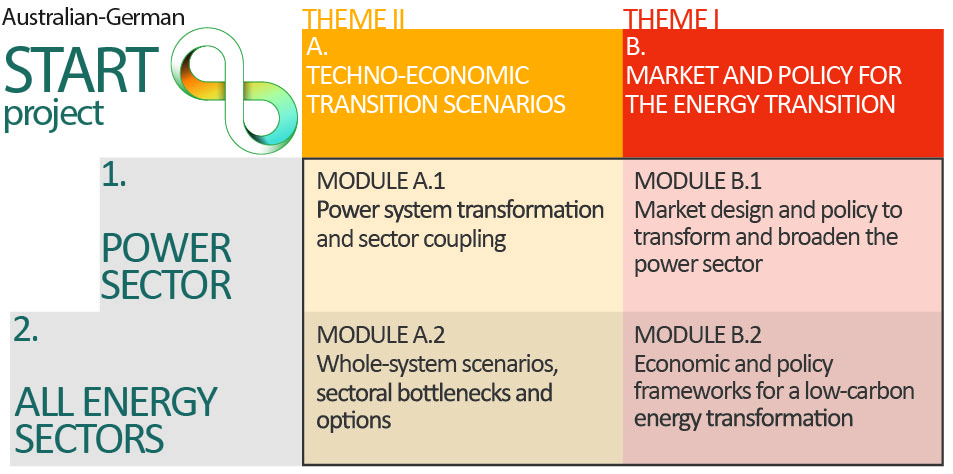The START Project: 'Strategic Scenario Analysis' in four modules
The START Project deepens Australian-German research capabilities on low-carbon energy transitions to assess strategic options for future technology and policy development.
To showcase the capacity for Australia and Germany to build a tradition of strong and durable collaborative research, the START project brings together several Australian and German research groups to conduct a joint assessment of energy transition pathways by identifying the related technological options and bottlenecks as well as regulatory barriers, policy solutions and economic opportunities.
This project is sponsored by both the Australian and German governments, more specifically the Australian Department of Foreign Affairs of Trade and the German Federal Ministry of Education and Research.
The approach combines future energy transitions scenarios with real-world experiences. From a holistic system-perspective, the partners provide an overview of the challenges and opportunities and examine similarities and differences across both countries.
Multiple stakeholders are involved to ensure that research results are practically relevant, socially acceptable and related to industrial business opportunities. The research is designed such that it can frame transdisciplinary discourses with stakeholders, inform policy makers about the relative importance of barriers and options, and guide agenda-setting processes on future research.
Research is organised into four modules
The joint research is organized in four modules (see table), each of which is led by two co-heads: one in Australia and one in Germany. The four modules are derived from combining two energy sectoral scopes (1.power and 2.all energy sectors) with two perspectives (A. techno-economic and B. policy and regulation).
- In module A.1, techno-economic scenarios are derived for the power sector of both countries incorporating technical solutions to integrating large shares renewable energy and sector coupling.
- In module A.2, bottlenecks to climate mitigation and technological solutions are identified and evalutated for the whole energy system, including buildings, industry and transport sectors.
- In module B.1, regulatory barriers and policy solutions are identified to facilitate investment in innovative technologies for transforming the power sector.
- In module B.2, techno-economic deep-decarbonisation pathways are contextualised by distilling lessons from broader distributional, political economy and governance aspects of energy transition.



